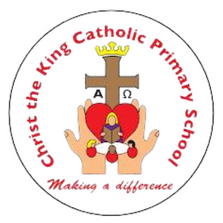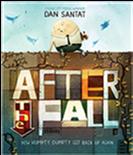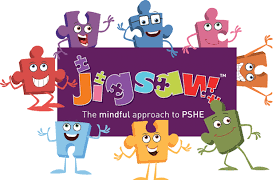Telephone +44 (0)1454 866680
RECOVERY CURRICULUM
Our Recovery Curriculum at Christ the King
As a school, we have been thinking carefully about what a curriculum should look like for our children when they return after the school closures, brought into action following the Covid-19 pandemic.
We will be implementing for this period and into next term a 'Recovery Curriculum' which acknowledges that there have been big losses to children as they have stayed at home and that these losses can contribute to pupil's mental health with anxiety, trauma and bereavement playing a large role. Children will perhaps have experienced these aspects all at once and in a sudden and unplanned fashion which can leave children feeling vulnerable.
As a school, we are also very mindful of the impact this pandemic has had on our children's attainment and progress. This new recovery curriculum will support our children's transition back into school so that they are then able to make accelerated progress in class and continue to shine.
The intention of a Recovery Curriculum is to provide opportunities to rebuild relationships and a sense of community, space to re-establish a sense of self and to relearn behaviour for learning skills. The focus will be gently returning to some semblance of routine whilst enabling play, outdoor exploration and physical development.
The Recovery Curriculum Framwork is based upon the work of Barry Carpenter which sets out the importance of recognising the trauma and loss that children will have been through during the Covid-19 pandemic. Successful transition for children to enable them to once again become confident learners at Christ the King. The way in which we do this is to acknowledge and accept the losses that we have all been through during the pandemic such as:
- Loss of Routine: means that we are likely to have at some point had disrupted sleep patterns, change in coping mechanisms, worried or become confused at lack of routine;
- Loss of Structure: would indicated that we may not have been following the same structures for learning that we have previously been accustomed to, we may have worries over lack of control and in particular change, we may have lost out on our right to carry out important transitions in our lives such as SATs, Secondary School visits, end of year parties, moving onto the next year group when Year 6 leave school;
- Loss of Friendship: whilst we haven't lost friendships and those people still remain in our lives we will not have been able to interact with them in the way we were previously used to, we grieve for the deeper social interaction and connectedness that friendship and relationships bring;
- Loss of Opportunity: many children and adults do not understand why school was closed, why we were no longer able to meet up with our friends and had to remain at home and indoors for most of the day. We do not understand fully why the decisions were made and for children in particular, they do not have the understanding that the Government made the decisions to partially close schools and that it wasn't their teachers or other school staff who took those decisions. For this reason, it is vitally important that we help children to understand that their safety was and is our primary concern;
- Loss of Freedom: for some children and adults school offers a place of escape, somewhere that they can be who they want to be and allows a sense of freedom to explore, make mistakes and to learn from them;
- The Consequence of Loss: may mean some of our pupils will require support dealing with bereavement, attachment, anxiety and trauma.
The primary focus of the recovery curriculum is to 'help children to recover from their loss of routine, structure, friendship, sleep, opportunity and freedom;.
Those five losses of routine, structure, friendship, opportunity and freedom, can trigger the emergence emotionally of anxiety, trauma and bereavement in any child. The overall impact cannot be underestimated.
Naturally, we recognised that pupils may have a loss of knowledge, but this does not recognise the scale of impact. If we consider the definition of a relevant curriculum as the 'daily lived experience' we must plan for experiences that provide the space for recovery.
The Recovery Curriculum Framework is built on the 5 levers as a systematic, relationships-based approach to reigniting the flame of learning in each child. Some children may return to school disengaged. School may seem irrelevant after a long period of isolation, living with a background of silent fear, always wondering if the day will come when the silence speaks and your life is changed forever. Our aim at Christ the King will be to journey with that child through a process of re-engagement, which leads them back to their rightful status as a fully engaged, authentic learner.
Lever 1: Relationships - we can't expect our students to return joyfully, and many of the relationships that were thriving, may need to be invested in and restored. We need to plan for this to happen, not assume that it will. Reach out to greet them, use the relationships we build to cushion the discomfort of returning;
Lever 2: Community - we must recognise that curriculum will have been based in the community for a long period of time. We need to listen to what has happened in this time, understand the needs of our community and engage them in the transitioning of learning back into school;
Lever 3: Transparent Curriculum - all of our students will feel like they have lost time in learning and we must show them how we are addressing these gaps, consulting and co-constructing with our students to heal this sense of loss;
Lever 4: Metacognition - in different environments, students will have been learning in different ways. It is vital that we make the skills for learning in a school environment explicit to our students to reskill and rebuild their confidence as learners;
Lever 5: Transparent Curriculum - to be, to rediscover self and to find their voice on learning in this issue. It is only natural that we all work at an incredible pace to make sure this group of learners are not disadvantaged against their peers, providing opportunity and exploration alongside the intensity of our expectations.
The Recovery Curriculum Framework is an essential construct for our thinking and our planning. We have tried to fill it with content we believe is best for the children at Christ the King. At the start of the school year, the whole school have planned work using the book "After the Fall" (How Humpty Dumpty Got Back Up Again) by Dan Santat.
The story, "After the Fall" is about Humpty Dumpty who is a broken egg. Life is tough; he's so afraid of heights, he can't even bear to climb onto his bed, or reach his favourite cereal on the top shelf at the supermarket. But one day, fuelled by his passion for bird-watching, he decides to conquer his fears and something amazing happens.
Additional JIGSAW PSHE Sessions
Each of our year groups will additionally receive discrete PSHE lessons on various topics related to coronavirus and the impact it has had on our society. These topics include:
Additionally, we will be carrying out careful assessments of our children with regards to their academic progress. We understand that our children's experiences during the home-learning period may vary from one individual to another. With that in mind, we will be ensuring that our curriculum matches the needs of our children, using teacher assessments in class, and planning to address any gaps that are discovered.
We have also made changes to our staffing structure for the 2020 / 2021 academic year. Our Deputy Head will be supporting children throughout the school in order to develop teaching and learning and support key groups in all classes and ensure any gaps in learning due to the school closures are addressed and closed.

Christ the King Catholic Primary School is a Voluntary Aided primary school. Registered Office: Easton Hill, Road, Thornbury, Bristol. BS35 1AW
Christ the King Catholic Primary School


